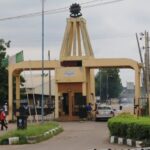RESEARCHERS said individuals with psychosis face significant barriers to accessing services and participating in social activities due to stigma and insufficient advocacy across Malawi, Nigeria, Sierra Leone, and Zimbabwe.
They said individuals with psychosis face limited access to services and opportunities across the five domains of the WHO Community-Based Rehabilitation (CBR) Matrix: health, education, livelihoods, social participation, and empowerment.
The study, “Living with psychosis in West and Southeast Africa: SUCCEED Africa’s four-country situation analysis,” was conducted in 2021 and focused on five domains of the WHO Community-Based Rehabilitation (CBR) Matrix: health, education, livelihoods, social, and empowerment.
The World Health Organisation (WHO) uses the umbrella term “psychosis” to describe conditions like schizophrenia and bipolar disorder. So-called “psychoses” are characterised by hallucinations, delusions, and disordered thinking and behaviour, though only a little over half of the people with bipolar disorder ultimately experience psychotic symptoms.
According to them, there was a lack of rights-based mental healthcare, as well as a general lack of educational, livelihood, social, and empowerment opportunities for people with psychosocial disabilities generally and for those with lived experience of psychosis, specifically, across four African sites.
They declared in the journal, Cambridge Prisms: Global Mental Health, the urgent need for increased inclusion of people with lived experience of psychosis in policy-making and advocacy efforts to address the existing gaps in services and resources.
Read Also: FUL students protest death of colleagues
“High levels of stigma and poor community awareness of psychosocial disabilities remain major barriers to full and equal participation. There is a need for greater inclusion of people living with psychosocial disabilities in policy and advocacy activities.
“Taking a comprehensive, evidence-based, and contextually appropriate approach enables the identification of the main gaps, needs, and resources.
“In the case of SUCCEED Africa (Support, Comprehensive Care and Empowerment of People with Psychosocial Disabilities in sub-Saharan Africa) Health Research Programme Consortium, a commitment to recognising the barriers faced by people with psychosocial disabilities requires a multi-sectoral, multi-stakeholder approach to address these inequities.
“This research sheds light on the specific challenges faced by individuals with psychosocial disabilities, which in many cases were similar across otherwise diverse contexts.
“This situation analysis is part of the formative research phase focused on identifying the existing evidence base as we begin to develop a theory of how the intervention will work within the local context(s), drawing on both published and grey literature as well as insights from team members with lived and/or professional experience in the countries under investigation.”
WATCH TOP VIDEOS FROM NIGERIAN TRIBUNE TV
- Let’s Talk About SELF-AWARENESS
- Is Your Confidence Mistaken for Pride? Let’s talk about it
- Is Etiquette About Perfection…Or Just Not Being Rude?
- Top Psychologist Reveal 3 Signs You’re Struggling With Imposter Syndrome
- Do You Pick Up Work-Related Calls at Midnight or Never? Let’s Talk About Boundaries






